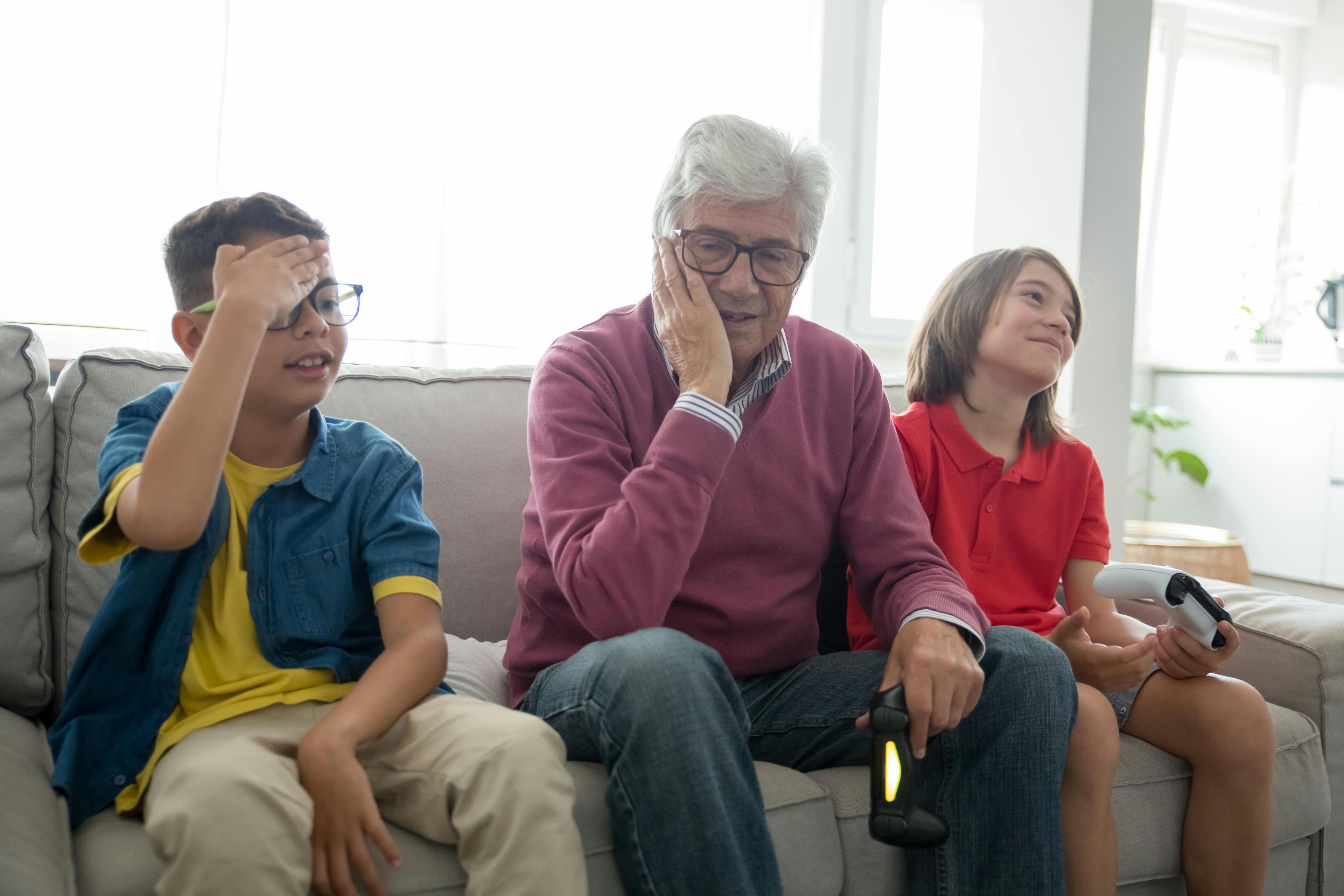Your Parent Has Changed: How To Reduce Anxiety And Welcome Them As A Grandparent
Sometimes, our parents take control of their mental health and their lives after we become adults.

Two things can be true: Your parent was a horrible parent, and they are a wonderful grandparent to your child.
An anonymous parent shares her experience with this in a Tweak India article: “I remember waking up one day in the hospital after the procedure and seeing my mother holding my firstborn, my father beside her, as they gazed down at her with the biggest smiles on their faces. That was five years ago. I gave birth to my second child nine months ago and saw that same joy on their faces in the hospital. I couldn’t remember the last time they looked at me with such glee. I have watched my bad parents become great grandparents to my two girls. It fills me with warmth, watching my father rock my younger one to sleep as he hums his favorite ghazals. Every Sunday, they come to my house with home-cooked food, smiles, and cheer as my older daughter runs to them. I see their arms and hearts open to embrace every first my children have – steps, words, or solid food – as well as their stumbles.”
This is a very delicate and painful reality. You have to accept that your parents could not be this version of themselves for you and that they are capable of it now. You must find a way to hold multiple feelings, like gratitude and appreciation, with fear and resentment.
If your parent was a terrible parent to you but has found a way to become a better grandparent, here are some things to consider and what you can do to reduce anxiety while facilitating that improved relationship between you, your parent, and your child.
- Don’t direct your anger and resentment at your children.
I know it can be painful to watch them get this different version of your parent. You are likely grateful, confused, and triggered all at once. And this is not your child’s burden. They are not responsible for this change and often have no idea what you experienced. Find other outlets for your pain and ensure that they are not responsible for making you feel better about this.
- They are not being burdened in the same way.
Being a grandparent is typically much easier than being a parent. They get to have short visits with the child, are not responsible 24/7 for their health and well-being, and are in an entirely different stage of life. If your parent is no longer working and has a much less stressful life, they will often have a greater capacity to interact with your child. This is not an excuse, but it can be why they are different now.
- It hurts when they give nothing to you but want to give it all to the next generation.
This is painful, and you are allowed to feel upset about it.
- Your child will notice if they are not treating you well - especially as they age.
If you allow this grandparent to spend time with your child, they will eventually notice how your parent treats you. It will be extremely noticeable if there is a discrepancy between how your parent treats you and how they treat your child. Is your parent still a terrible parent to you today? Do you feel that your parents have adjusted how they relate to you and that exposing your child to that dynamic is helpful? For some of you, your parent will have softened. Maybe they haven’t healed everything from your childhood, but they do treat you with respect around your child. That can be enough for some people to lower their guard and attempt to have a relationship.
- Some grandparents are only good with kids of a certain age.
Many adults realize this as they have children and see their parents around those children. It is very easy to relate to a baby. Babies have no opinions and don’t talk back; you can project whatever you want on them. If you have a narcissistic parent, they will likely excel with a baby and struggle with a more opinionated pre-teen or adult grandchild. It’s understandable if you have anxiety about your parent only being able to interact with your child at specific ages. Remember, these relationships are constantly in flux. Having a relationship with a grandparent now does not guarantee a relationship in the future. If a relationship becomes unhealthy or unmanageable, you can change the terms.
- If your parent got sober or had mental health treatment, this may be why they’ve changed.
Sometimes, our parents take control of their mental health and their lives after we become adults. This means that the child version of you will never get access to this new version of them. It may be challenging to trust or accept that they've changed, but you can take your time to get to know this new, improved version of them. You can also re-evaluate the relationship if they are no longer sober or their mental health declines and leads to bad behavior.
- Sometimes, it’s fake, and that is painful.
Not all parents who are behaving differently have changed. You may see glimmers of their old selves when they are told no, or you set a boundary. Being in a relationship with someone who is putting on a facade can be anxiety-provoking, and there is no way to know how long this will last or if it is legitimate. You will have to decide if you’re willing to interact with their current behavior and if you can allow your child to be around them. Sometimes you can, but sometimes it’s just too much risk.

If you allow them around your children and discover that the relationship is not salvageable and they haven’t changed, that is okay. You may feel it’s not safe or right to have your kids around this person after attempting to reconcile or welcome them as a grandparent. And if the growth comes too little too late for it to change anything, that’s okay, too. Use your discretion.